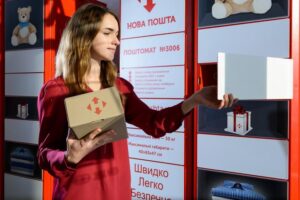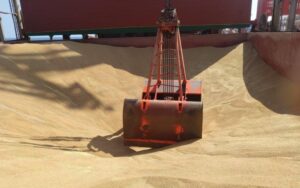
The European Dairy Association (EDA) expressed dissatisfaction with the European Commission over the unilateral imposition by several EU member states of restrictions on the import of Ukrainian agricultural products, in particular dairy products, and demands support for the extension of suspension of all tariffs and quotas, the EDA said.
“As EDA, we have clearly stated our support for the continuation of the European Commission’s zero quota, zero tariff approach when it comes to Ukrainian dairy exports to the EU. These exceptional times ask for unity rather than solo flying member states putting the internal market at risk. Today we cannot see a market impact that would justify any restrictions on the import of Ukrainian dairy imports, and we therefore called upon the European Commission to defend the integrity of the single market and to uphold the special suspension for all tariffs and quotas,” it said.
“Our special EU-Ukrainian dairy relationship was recently underlined with the attendance of the CEO of the Ukrainian Dairy Federation at our latest EDA Dairy Policy Conference in March 2023,” it added.

Nova Posta group of companies has suspended acceptance of food products for shipment to all EU countries due to import restrictions imposed by the Polish customs, the company’s press service said.
“We are waiting for further clarification from the governments of Poland and Ukraine to clarify the possible terms of resumption of such shipments,” the statement said.
All branches of “Novaya Posta” temporarily do not accept any products in international parcels that are sent to the EU, due to the introduction of temporary restrictions on the import and transit of a number of food products from Ukraine – sugar, cereals, confectionery, fruits, vegetables and others.
Founded in 2001 Nova Posta is the leader of express-delivery market in Ukraine. Its network consists of more than 6 000 offices all over the country. The group “Nova Posta” provides customers with a full range of logistics and related services. The group consists of Ukrainian and foreign companies, including Nova Posta, NP Logistic, Post Finance (Forpost system) and Nova Posta Global.
A reminder that Poland, Slovakia, Hungary and Bulgaria imposed a ban on a number of agricultural products from Ukraine, but did not ban their transit through their territory.

Negotiations to unblock imports of Ukrainian agricultural products to the EU between Ukraine, Poland, Slovakia, Hungary, Romania, Bulgaria and the European Commission (EC) continue. The EU offered a package of financial assistance to five countries neighboring Ukraine in exchange for the lifting of restrictive measures on Ukrainian agricultural products, informs the Ukrainian government portal.
“These countries will receive the package offered by the Commission on condition that member states cancel their unilateral measures,” EC Vice President Valdis Dombrovskis said after a meeting with representatives of Ukraine and the five EU member states that restrict the export of Ukrainian agricultural products.
According to him, the European Commission understands the importance of a joint EU approach rather than unilateral decisions, which can lead to new bans and thereby endanger the internal European market.
“The Commission has taken note of the views of the participants. We agreed to continue political consultations in the coming days to find an early solution to this problem,” Dombrovskis summarized.
The ban on the transit of Ukrainian grain through the territory of Poland and other countries was imposed last week. Poland subsequently pledged to unblock the transit of Ukrainian products through the territory of a neighboring country.

Ukrainian sugar producers have asked EU countries to reconsider the sugar export ban on domestic EU markets and resume it taking into account the sugar shortage in Europe, Nazar Mykhailovin, acting head of Ukrtsukor, said.
“Not all countries impose an embargo on Ukrainian products. We need a way through which we can sell exports of sugar. We have to forget about the sea route for some time, but the transit through the EU countries, particularly through Poland and Romania is needed,” he commented to Interfax-Ukraine agency about the situation with the export of Ukrainian sugar to the EU.
According to the industry association, during the period from June 2022 to March 2023 almost 99.9% of Ukrainian sugar was sold on the EU internal market.
The top countries that bought Ukrainian sugar in March 2023 included Romania, Poland, Hungary, Italy, Bulgaria, the Czech Republic and Croatia. Poland, one of the first to ban imports of Ukrainian sugar, bought 8,242 tons of the product from Ukraine, Mikhailovin said.
“Since the beginning of the war, Ukraine has lost its sea export corridor, which has become inaccessible for Ukrainian sugar. Accordingly, the export was carried out mainly to European countries.
At the same time Mikhailovin reminded that due to the beginning of the war the EU made a decision, thanks to which and the presence of export potential Ukraine has the ability to export sugar to the EU domestic markets.
In the sugar beet sugar production season of the 2022 harvest, the factories produced 1.330 million tons of products, which fully met the needs of the domestic market and export potential, the industry association said.
“In the 2022/2023 marketing year, the export potential will depend on the area sown under sugar beet, weather conditions and yields in both Ukraine and Europe,” Mikhailovin said.

Oil prices are stable Wednesday ahead of the release of last week’s U.S. energy inventory data and the country’s March inflation report.
June Brent crude futures on London’s ICE Futures exchange stood at $85.65 a barrel by 8:05 a.m. Wednesday, up $0.04 (0.05%) from the previous session’s close. Those contracts rose $1.43 (1.7%) to $85.61 a barrel on Tuesday.
The price of WTI futures for May oil grew by $0.07 (0.09%) to $81.6 per barrel at electronic trades of the New York Mercantile Exchange (NYMEX) by that time. Contracts rose $1.79 (2.2%) to $81.53 a barrel in the previous session.
“The recent OPEC+ decision to cut production continues to support the oil market,” said Warren Patterson, who is responsible for oil market strategy at ING Groep NV.
“However, at the moment all traders’ attention is focused on data on consumer price dynamics in the U.S., and higher-than-expected inflation will have a negative impact on risky assets,” Patterson was quoted by Bloomberg.
These data will be published by the Labor Department of the USA on Wednesday at 15:00 Moscow time. Experts questioned by Trading Economics on average predict a slowdown of inflation in the country in March to 5.2% on an annualized basis from 6% in February.
The market’s attention is also directed to the U.S. Energy Department’s report on the country’s energy inventories for the week ended April 7, which will be released at 5:30 p.m.
According to the American Petroleum Institute (API), released on Tuesday night, U.S. oil inventories rose by 377,000 barrels last week after falling by 4.3 million barrels a week earlier. Experts polled by Trading Economics, on average, had expected a 1.3 mln barrel increase in inventories.
Stocks at Cushing terminal, which stores oil traded on Nymex, decreased by 1.4 million barrels, API data show. If this estimate is confirmed by official data, the reduction in inventories in Cushing will be noted at the end of the sixth week in a row.

The European Dairy Association (EDA) supports the extension of preferential treatment for Ukrainian dairy exports to the EU, according to the March issue of Dairy Flash.
“As EDA, we have made clear our support for the extension of the European Commission’s “zero quota, zero tariff” approach when it comes to Ukrainian dairy exports to the EU. It goes without saying that we expect compliance with the principle of reciprocity in the trade approach,” the EDA stressed.
The corresponding statement was made at the 6th Forum “Civil Society EU-Ukraine” that was held by the Trade Service of the European Commission with the participation of business organizations, environmental groups and non-governmental organizations of the EU and Ukraine.
EDA is a European platform of dairy processors, uniting cooperatives, private dairies, world dairy industry leaders, as well as small and medium-sized companies operating in the dairy sector. It has a major think tank. EDA committees and working groups work to ensure a sustainable dairy base in Europe, to unlock the potential of EU domestic markets, and to ensure growth in global dairy processing.